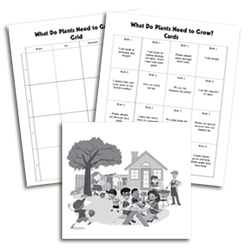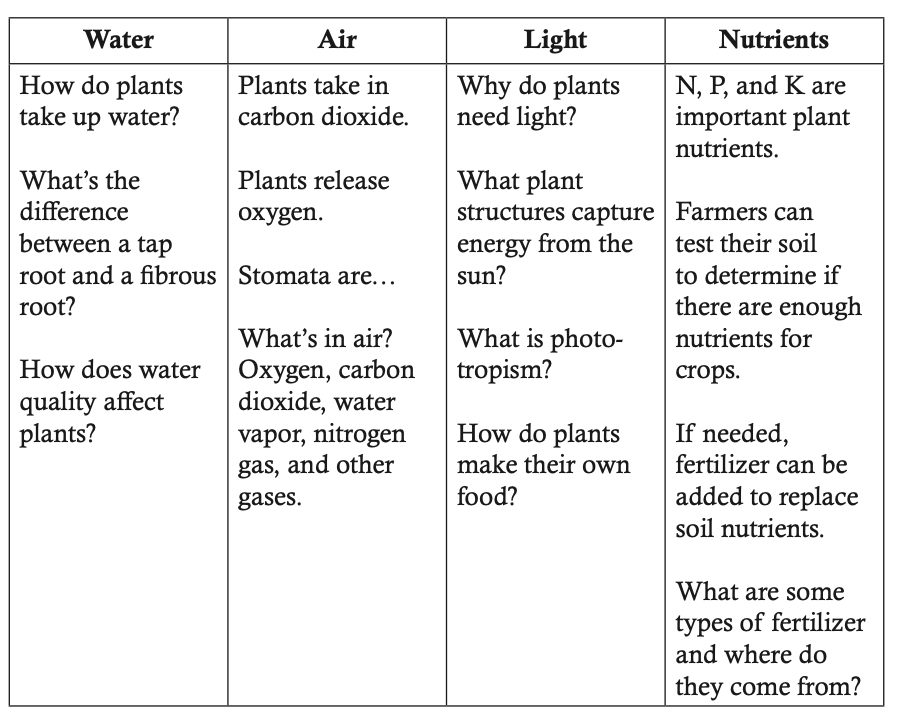Agricultural Literacy Curriculum Matrix
Companion Resource

What Do Plants Need to Grow?
This activity reviews the fundamentals required for plants to survive. This activity is best used after students have learned about a plants' basic necessities (air, water, light, and nutrients). The activity also demonstrates the many ways that humans rely on plants in everyday life.
Time to Complete
Materials
For each pair of students:
- What Do Plants Need to Grow Grid handout
- What Do Plants Need to Grow Cards and Plant Hunt printed as a double-sided handout
- Crayons, markers, or colored pencils
- Tape
- Envelope or resealable plastic bag
Procedures
- Before the activity, replicate and cut out one set of What Do Plants Need To Grow? cards for each pair of students. Organize each set of cards in an envelope or resealable plastic bag.
- As a class, discuss the four basic things plants need to grow: water, air, light, and nutrients and write these on the board. In the space below each of these plant needs, ask the class to help you fill in details. Discussion topics for each plant need could include:

- Ask students to think about the ways that humans use or depend on plants. Ask students how plants might depend on people? Make a list of responses on the board. Emphasize that plants are the primary source of matter and energy entering most food chains. Plants are producers.
- Divide students into pairs. Distribute one What Do Plants Need to Grow? grid and one set of What Do Plants Need to Grow? cards to each pair of students. Point out to students that each of the columns on the puzzle grid is labeled with one of the plant necessities. Also point out that each puzzle piece is labeled with a row number, one through four.
- Instruct pairs to read the clues on the cards and decide which plant need is being described on the card. Students will place each card in the correct grid column and row number indicated until all the pieces are placed on the grid. Do one card together as a class.
- Students may compare their answers with other groups and discuss their results. Allow students to rearrange pieces to make corrections if they choose.
- Once students are satisfied with the arrangement of their cards on the grid, instruct them to tape the cards together, being careful not to tape them to the grid below.
- When all the card pieces have been taped together, ask students to turn the cards over to reveal an illustration and activity, Plant Hunt.
- Ask students to perform the activity by circling all of the objects in the illustration that come from plants. Discuss possible answers as a class. Students may then color the illustration.
File, Map, or Graphic
Author
Organization
Sources
This activity was originally developed in 1993 through a partnership between the California Department of Food and Agriculture, California Farm Bureau Federation, Fertilizer Inspection Advisory Board, Fertilizer Research and Education Program and the California Foundation for Agriculture in the Classroom. It was updated in 2013 with funding from the California Foundation for Agriculture in the Classroom and a grant from the California Department of Food and Agriculture’s Fertilizer Research and Education Program.
Original Author: Pamela Emery
Executive Director: Judy Culbertson
Illustrator: Erik Davison
Layout and Design: Nina Danner
